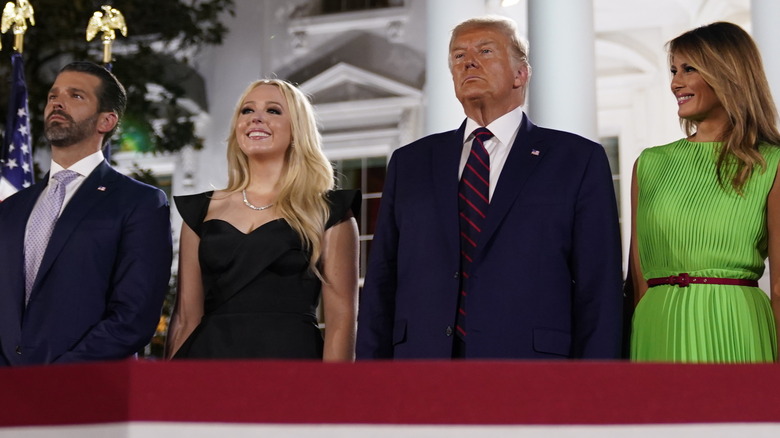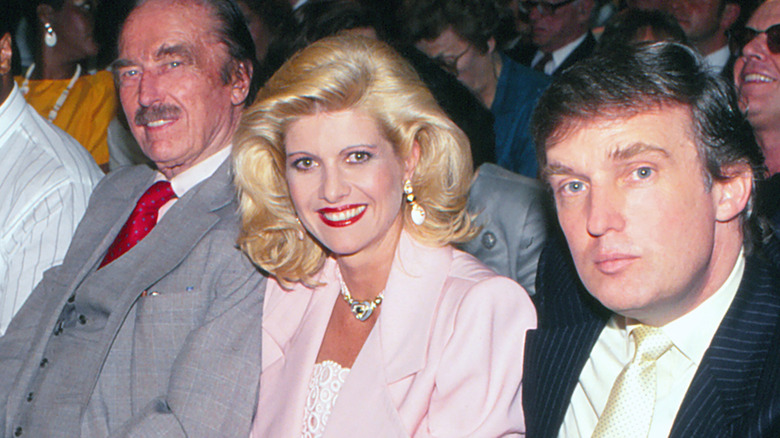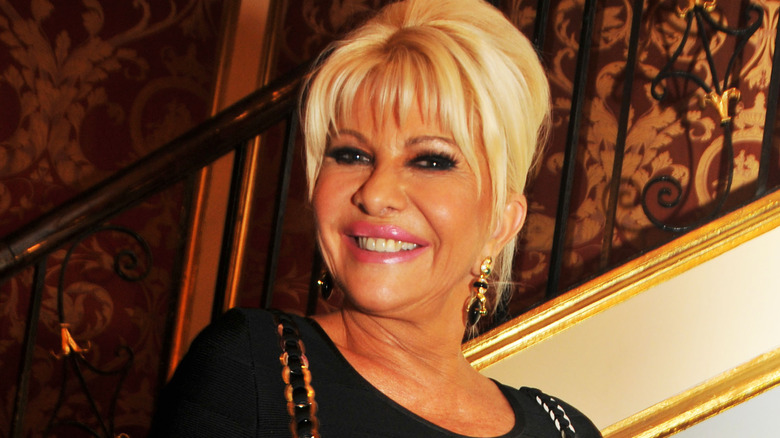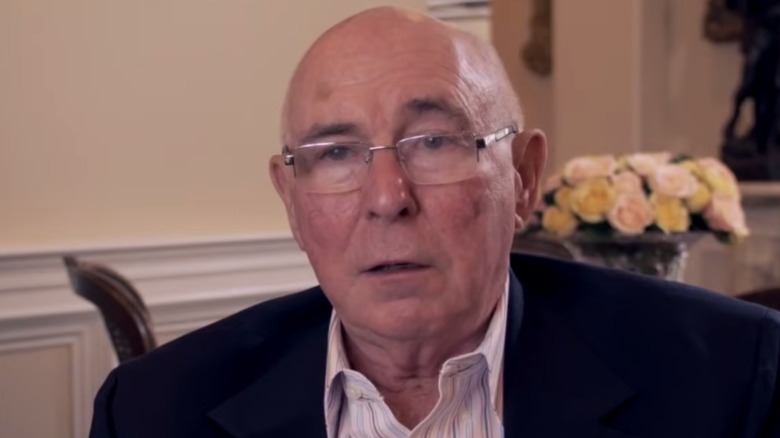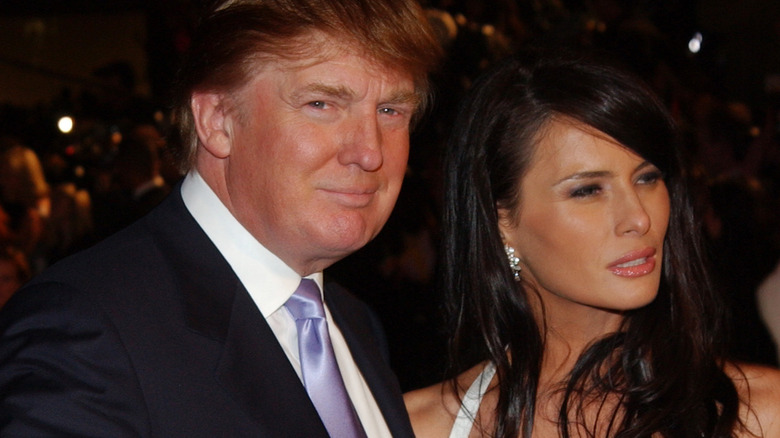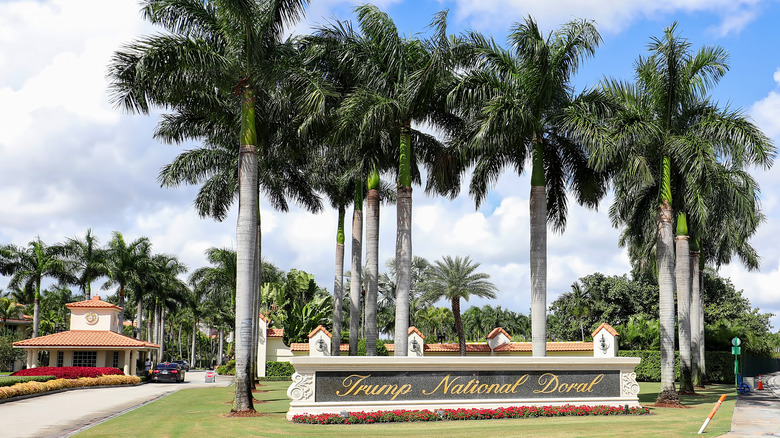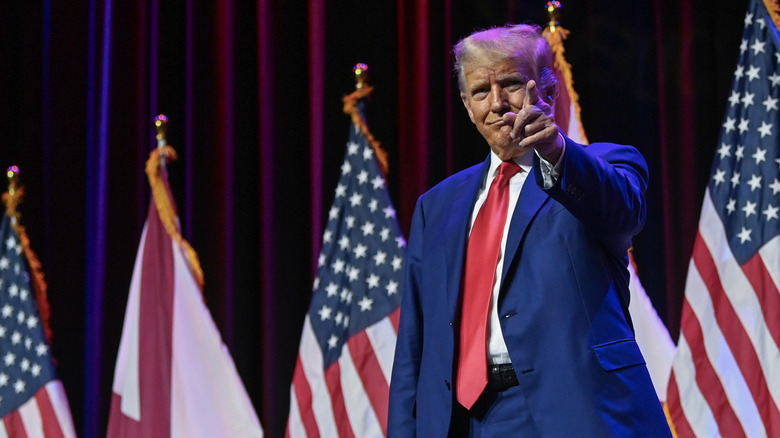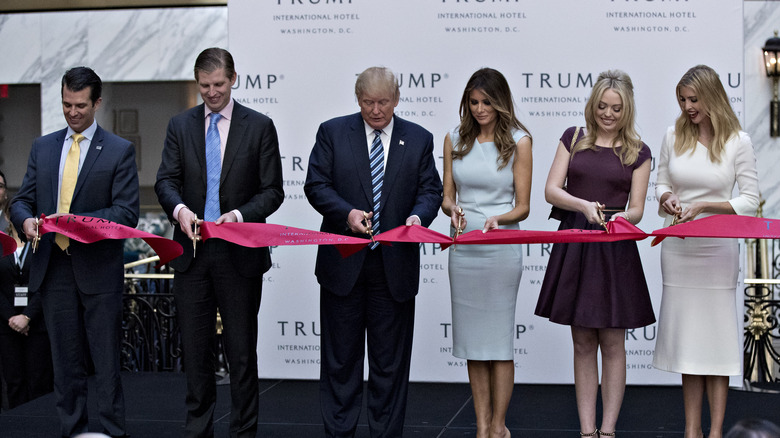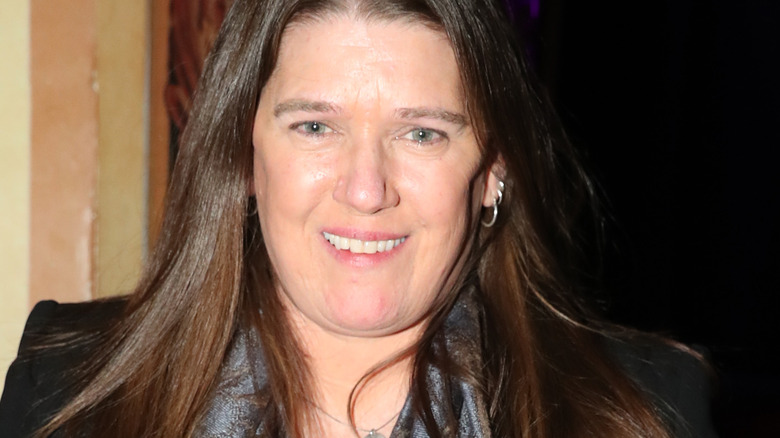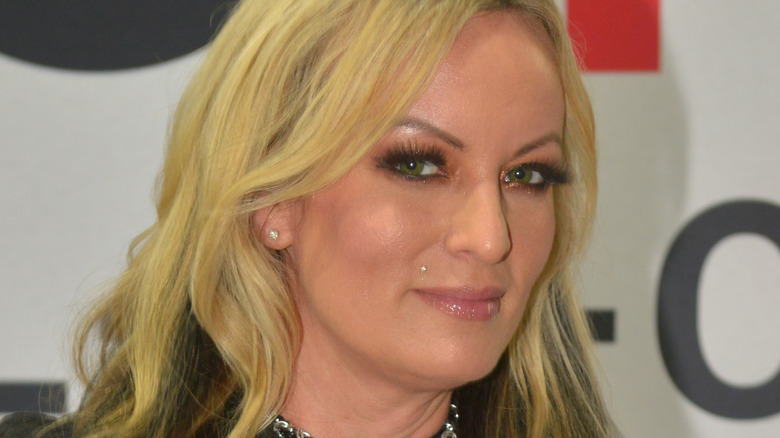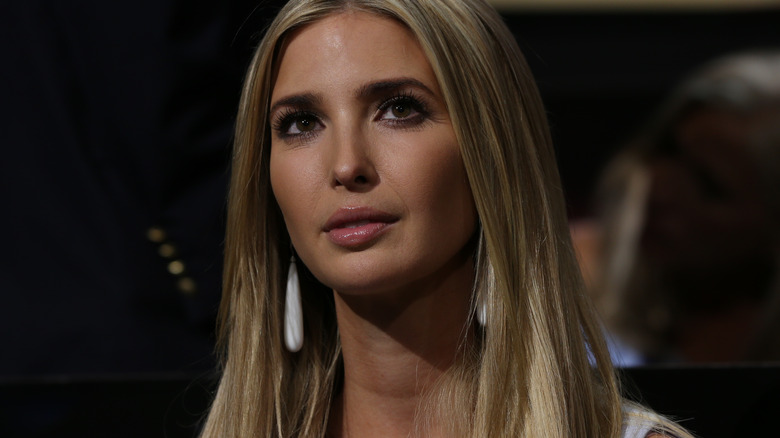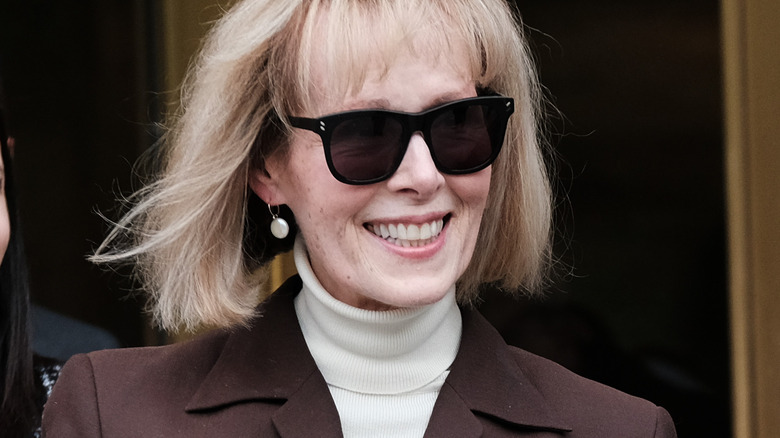The Trump Family's Biggest Lawsuits
Former President Donald Trump is currently facing criminal charges in four different places. He has 34 felony counts in New York for a hush-money scheme involving an adult film star and his ex-lawyer Michael Cohen, 40 felony counts in Florida for his handling of classified documents and for obstructing their return, four felony counts in Washington D.C. for his involvement in the January 6 insurrection, and 13 felony counts in Georgia for election interference. He also has several civil cases on the dockets as well.
Trump and his lawyers are certainly having a busy year, but these current criminal charges are not the only time a Trump family member has found themselves in a courtroom. From massive divorce settlements to civil rights violations, the Trumps have been fighting legal battles for decades! Keep reading to learn more about the Trump family's biggest lawsuits filed (both against them and by them) over the years.
Trump Management's housing discrimination case
In June 1975, former President Donald Trump and his father Fred Trump settled a housing discrimination case brought against their real estate company.
The lawsuit stated Trump Management was violating the Fair Housing Act of 1968 by refusing to rent apartments to Black tenants. After complaints were filed, the New York City Human Rights Division sent testers to buildings owned by the father and son. Black testers were told no apartments were available, while white testers were offered a rental. The building superintendent said he wasn't "allowed to rent to Black tenants" when confronted by a city human rights commissioner, according to NPR.
It took two years to settle the case as the Trumps attempted to countersue for defamation to the tune of $100 million in damages, but the countersuit was dismissed. Fred and Donald were required to adhere to the Fair Housing Act, place ads in the paper stating apartments were available to rent by minorities, and their real estate company was required to give the New York Urban League a list of vacancies each week. Fred Trump and Coronet Hall Inc. (another Trump company) would also be named in a 1982 class action lawsuit asserting that various civil rights laws and the Fair Housing Act were violated at their properties — Donald Trump was not specifically named in this suit, but he was the owner of Coronet Hall at the time.
Ivana Trump's divorce settlement
In December 1990, former President Trump settled a divorce suit with Ivana Trump for $14 million, a mansion in Connecticut, and a Trump Plaza apartment in New York.
Ivana Zelníčková, a Czech model, was living in Canada when she met Trump on a visit to New York City in 1976, and they married the following year. The Trumps became fodder for the New York society tabloids and beyond during the '80s, even appearing on "The Oprah Winfrey Show" together in 1988. She held multiple positions within his businesses including CEO of his Castle casino and vice president of the Trump Organization. The couple had three children together: Donald Jr., Eric, and Ivanka.
The marriage began to fall apart publicly in 1989 when they were spotted fighting at a ski resort in Aspen, Colorado, presumably about his affair with Marla Maples — who was also visiting Aspen at that time. The divorce proceedings started shortly afterward to worldwide media coverage and was granted roughly a year after the Aspen blowout. Ivana's grounds for divorce were cruel and inhuman treatment. Though the pair had four marital-property agreements, she was awarded the large settlement for herself and $650,000 a year in child support for the three kids.
Marvin Roffman's defamation suit
In April 1991, former President Trump settled a defamation suit brought by Marvin Roffman for an undisclosed amount.
The Wall Street Journal published an article on March 20, 1990, discussing the viability of Trump's Taj Mahal casino, which was slated to open the following month. Roffman, an investment analyst who specialized in the Atlantic City casino industry, was asked to give his opinion in the article. He predicted the casino would have an excellent opening due to the massive amounts of publicity Trump was getting but would then start to flounder. "It won't make it. The market just isn't there," Roffman said. Trump demanded a public retraction in a letter sent to Roffman's employer, Janney Montgomery Scott, the day the article was published.
Roffman didn't change his stance and was fired three days later. Trump disparaged the analyst in the media for months afterward, leaving Roffman unable to find another job. His lawyers argued that he was blackballed as a result of Trump's defamation. Trump eventually settled he case, but the amount is undisclosed due to a confidentiality agreement. "All I can say is Marvin Roffman is extremely happy with the settlement," Roffman told Politico in an interview conducted at his 40-room house near Kings Creek Country Club in Delaware. The Taj Mahal entered Chapter 11 proceedings a month after the settlement.
Marla Maples' divorce settlement
In June 1999, former President Trump settled a divorce suit with Marla Maples for $2 million.
Maples, a Miss Georgia USA runner-up, met Trump in 1984 while he was still married to Ivana. Their relationship was well documented by the media, and the couple made TV appearances together, including a cameo spot on "The Fresh Prince of Bel-Air." They would marry in December 1993, two months after their daughter Tiffany was born, in a 1,000-guest ceremony at New York City's Plaza Hotel.
The marriage dissolved a few years later, shortly after Maples was found at 4 a.m. on a deserted Florida beach with Spencer Wagner, Trump's bodyguard. Maples denied rumors of an affair, but Wagner's ex-wife Mary Miller tells a different tale. "He said she would try to pull him into a bedroom in the house," Miller told Inside Edition in 2016. Maples is unable to discuss her marriage years due to the terms of their prenuptial agreement. In addition to her divorce settlement, she received $100,000 per year in child support until Tiffany turned 21.
The Trump Hotels & Casino Resorts bankruptcy
In November 2004, Trump Hotels & Casino Resorts entered into Chapter 11 bankruptcy in order to restructure its $1.8 billion worth of debt.
Former President Trump has filed Chapter 11 six times to manage debt in his various companies: Trump Taj Mahal (1991), Trump Castle Hotel & Casino (1992), Trump Plaza Casino (1992), Trump Plaza Hotel (1992), Trump Hotels & Casino Resorts (2004), and Trump Entertainment Resorts (2009). Chapter 11 allows business owners to clear or restructure debt owed to shareholders, creditors, or other companies. When Trump said "I have never gone bankrupt" at a Fox News Republican debate in 2015, he technically wasn't lying. He has never filed for personal bankruptcy.
Trump Hotels & Casino Resorts was the holding company for several casinos. Filing Chapter 11 cut the company's debt by $600 million and saved it $102 million in interest payments. Trump gave up his role of chairman of the board in the restructuring, and Trump Hotel & Casino Resorts became Trump Entertainment Resorts Inc. The financial woes continued, however. In 2016, it became part of Icahn Enterprises, and the properties were eventually closed and sold off.
The Trump Doral Golf Resort breach of contract suit
In May 2016, former President Trump was ordered to pay $315,000 to a Florida paint supply store, or his National Doral Miami resort would be foreclosed and sold.
Using funds borrowed from the Deutsche Bank, Trump purchased the Doral Resort & Spa, which included four golf courses, in 2012 for a total price of $150 million. He then changed the name to Trump National Doral, and in 2013, he launched a massive $250 million renovation project that took nearly three years to complete. As part of the makeover, the resort contracted with The Paint Stop, a Miami paint store chain.
The suit filed by the paint store claimed Trump failed to make the final $32,536 payment due per the contract, but Trump's company argued the store didn't follow the correct statutes. Florida's Third District Court of Appeal ruled in favor of The Paint Spot, and Trump was required to pay the $32,536 to clear out the contract as well as $282,950 in attorney fees. As he lost his appeal and still owns the resort, it is assumed he paid the court-ordered amount to the paint supply store.
The Trump Campaign's copyright infringement suit
In June 2016, former President Trump settled a copyright infringement case for an unknown amount.
Wendy Shattil and Robert Rozinski, award-winning wildlife photographers, filed a suit against the Trump presidential campaign for the use of their bald eagle photograph taken in 1980. According to the complaint, "The Photograph captures a piercing, intimate, eye-to-eye moment with this majestic creature with near-perfect symmetry against a flawless sky blue background." The plaintiffs say they tried to address the use of their photo privately, but the campaign was unwilling. The Trump campaign was accused of using the photo in social media postings, printing it on merchandise for sale, and encouraging its supporters to print signs that incorporated the photo. The suit was seeking direct and secondary copyright infringement damages.
The eagle photo was not the only lawsuit filed against the presidential campaign. A U.K. photographer filed a suit over a photo depicting a bowl of Skittles, a campaign staffer filed a claim over nondisclosure agreements, and musician Neil Young filed a suit over the use of his song — just to name a few.
The Trump University class action lawsuits
In November 2016, former President Trump settled lawsuits against Trump University for $25 million.
Trump University was a real estate training program founded by Donald Trump, Michael Sexton, and Jonathan Spitalny in 2004. It was not an accredited school, and students did not earn any college credits for entering the program. Instead, they attended seminars meant to build wealth through entrepreneurship, real estate investment, and asset management. Those entering the program paid up to $35,000 for the seminars, and the faux school claimed the instructors were experts vetted by Trump himself.
The New York Attorney General's office began an investigation into illegal business practices in 2011, which ultimately led to two class action suits. Former NY Attorney General Eric Schneiderman told CNN that the program "was a classic bait-and-switch scheme" in a 2013 interview. Despite telling MSNBC he wouldn't settle because "it's an easy case to win in court," Trump settled with the former students for a total amount of $25 million.
The Trump Foundation's misuse of funds lawsuit
In November 2019, former President Trump was required to pay $2 million in damages for misusing charitable funds through the Trump Foundation.
While running for president in 2016, Trump hosted a telefundraiser to raise money for veterans (skipping a GOP debate) because helping former military personnel was part of his campaign platform. "Our vets are being mistreated ... and it's not going to happen anymore," he said during the event. Donators were told that the $2.82 million raised would be donated to various charities. However, according to NPR, the court case brought by New York Attorney General Letitia James stated the money was "used for Mr. Trump's political campaign and disbursed by Mr. Trump's campaign staff." The foundation was dissolved in 2018 due to a separate investigation into its political practices, possible illegal activity, and suspicious transactions.
In addition to a $2 million payout, Trump was required to acknowledge his personal misuse of funds, and agree to oversight by the attorney general's office if he started another charity. His three oldest children, Donald Jr., Ivanka, and Eric, were ordered to attend training on the proper use of charitable funds. The settlement was split evenly between eight charities including Army Emergency Relief and Citymeals on Wheels.
Mary L. Trump v. Donald J. Trump and Donald J. Trump v. Mary L. Trump
In November 2022, Mary Trump lost an inheritance case in court to her uncle former President Trump.
Mary alleged her two uncles, Donald and Robert Trump, and her aunt, Maryanne Trump Barry, defrauded her out of an inheritance left by her father Fred Trump Jr. Fred died in 1981 when Mary was 16 and left her a sizable real estate portfolio. She claims her aunt and uncles swindled her out of millions — a fact she only learned in 2018 due to a New York Times piece. The judge ruled in Donald's favor, saying the $2.7 million she received was fair.
Donald countersued his niece as well as three New York Times reporters with a claim that they "engaged in an insidious plot to obtain confidential and highly sensitive records which they exploited for their own benefit." He wanted $100 million in damages. Judge Robert Reed dismissed the case against the reporters in May 2023. However, it has been ruled that Donald can proceed with a breach-of-contract claim against his niece.
The Stormy Daniels hush-money settlement
In April 2023, former President Trump appeared in criminal court to plead not guilty to 34 felony accounts of falsifying business records — it is the first time a former (or current) president has faced criminal charges.
Adult film star Stephanie Clifford — commonly known as Stormy Daniels — claims she had an affair with Trump back in 2006 after meeting him at a celebrity golf tournament. She also claims she was paid $130,000 in 2016 by Michael Cohen, Trump's personal lawyer at the time, to stay quiet about her encounter with the then-presidential nominee. Initially, both Cohen and Trump denied the affair and the payment, but Cohen pled guilty in 2018 to eight counts of tax evasion, fraud, and campaign finance violations in connection with the payment.
The claims made by Daniels and the confession by Cohen led to an extensive investigation by the Manhattan district attorney's office. Current Manhattan District Attorney Alvin Bragg took office in 2022 and carried on with the case. In January 2023, Bragg's office presented evidence to a grand jury alleging Trump schemed to "catch and kill" any stories that would negatively impact his chances in the 2016 election. Trump was indicted in March and arraigned in April, and the case may be tried as early as March 2024.
Ivanka Trump's $250 million fraud lawsuit
In June 2023, a $250 million fraud lawsuit against Ivanka Trump was dismissed by a New York state appeals court because it fell outside the statute of limitations.
The Trump Organization was sued by the New York attorney general in September 2022. The suit accuses former President Trump and his three oldest children of misleading banks and insurance companies about the value of the organization's properties and holdings. The attorney general is seeking $250 million in damages. Plus, she wants the Trump family barred from creating any more businesses in New York.
Donald and his two eldest sons, Donald Jr. and Eric, were found liable for fraud in September 2023. Donald and his sons were found to have been inflating the worth of Donald's assets and the properties owned by the company to better suit the needs of the business. The attorney general's evidence shows Donald inflated his net worth by between $812 million and $2.2 billion from the years 2014 to 2021.
The E. Jean Carroll defamation suit
In September 2023, former President Trump was found liable in the E. Jean Carroll defamation suit.
E. Jean Carroll, advice columnist and author, accused Trump of sexually assaulting her in a 2019 New York Magazine article. Carroll claimed the assault took place in the mid-'90s in a Bergdorf Goodman dressing room. Trump denied the allegations and made disparaging comments about her. A civil suit concluded in May 2023 found the president liable for sexual abuse and defamation — awarding Carroll $5 million.
In a 2022 statement on Truth Social, he called Carroll's account "a hoax and a lie" and "a complete con job." Carroll filed a second defamation suit against him for the social media comments. Judge Lewis Kaplan presided over the case and argued Trump made comments about Carroll with malice. A second court date is scheduled on January 15, 2024, to determine the amount for which Trump is liable.
